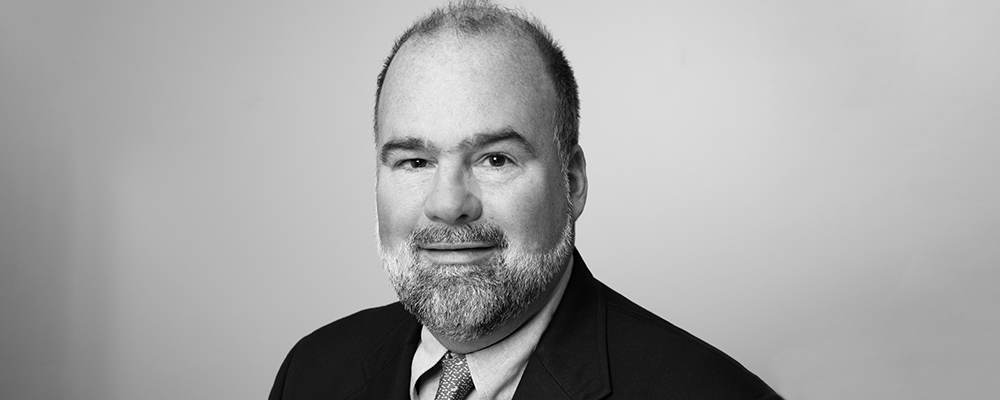Fishman Haygood Prevails in Second Circuit Appeal
September 22, 2011
A West Virginia hospital system can arbitrate its dispute with the investment bank that underwrote and served as broker-dealer for its bonds, according to a federal appeals court.
Fishman Haygood, representing the West Virginia United Health System, Inc., argued that the hospital system is a “customer” of the investment bank, UBS, and is entitled to demand arbitration in the Financial Industry Regulatory Authority’s arbitral forum. UBS, in turn, had argued that the hospital system was not a “customer” of the bank, as that term is understood inFINRA, and therefore that the case belonged instead in federal court. The Second Circuit ruled that “WVUH was UBS’s customer because WVUH purchased a service, specifically auction services, from UBS” and was therefore entitled to FINRA arbitration of its claims.
Fishman Haygood Partner James Swanson argued the case before the U.S. Second Circuit Court of Appeals, with associates Jason Burge and Alysson Mills assisting with the briefing.
2nd Circ. Sends UBS, Hospital ARS Fight To Arbitration
The Second Circuit on Thursday affirmed a lower court’s ruling forcing UBS AG into arbitration with a West Virginia hospital company in a dispute over $329 million in auction rate securities. In a 2-1 ruling, the appeals court said West Virginia United Health System Inc. is considered a UBS customer under Financial Industry Regulatory Authority rules, entitling FINRA to compel arbitration for the claims against UBS about misrepresentations concerning theARS market.
UBS had argued that the hospital company should not be considered a customer because it was an issuer of, not an investor in, the bonds involved in the dispute. But the Second Circuit disagreed, saying that in each of the three broker-dealer agreements in dispute, WVUH paid UBS fees for its services in facilitating the auctions.
“In view of that undertaking and a definition of customer that at least includes an entity that undertakes to purchase a good or service, WVUH became UBS’ customer by contracting with UBS to obtain auction services for a fee,” the appeals court said.
In addition, FINRA, in a ruling denying UBS’ motion to stay arbitration, rejected the same argument UBS had made before the Second Circuit, according to the opinion.
“Though we need not rely on FINRA’s decisions to conclude that WVUH wasUBS’ customer, we note that FINRA’s practical application of its own rules in this case does not support UBS’ position,” the Second Circuit said.
Like many other parties bringing claims over ARS, West Virginia United Health alleges that UBS failed to disclose growing liquidity problems for the securities, including the fact that it was propping up auctions used to periodically set the interest rates on the bonds.
The health care company bonds pertaining to the dispute were issued between 2003 and 2006, with UBS serving as a lead underwriter, according to briefs. The hospital company further maintains that UBS advised it in connection with a related interest-rate swap, which also created problems for the company.
UBS appealed a decision by U.S. District Judge Victor Marrero that dismissed the bank’s complaint seeking an injunction barring the arbitration.
“It’s the ruling we were hoping to get,” WVUH attorney James R. Swanson of Fishman Haygood Phelps Walmsley Willis & Swanson LLP said. “We’re happy to have this behind us. It’s been pending for a long time.”
In a dissent, U.S. District Judge Loretta A. Preska, sitting for the Second Circuit, said the majority ruling “declines to answer the question squarely presented in this appeal — whether an issuer of securities is entitled under theFINRA rules to arbitrate a dispute with its underwriter regarding the underwriting.”
WVUH has two distinct grievances against UBS in this case, she said: one related to the underwriting and issuance of ARS and another related to the allegedly fraudulently induced purchase of broker-dealer services.
“The majority ignores these fundamental distinctions and concludes that by purchasing UBS’ broker-dealer/auction services, WVUH is entitled to arbitrate — and obtain damages related to — a dispute not about being duped into purchasing UBS’ broker-dealer services, but about being duped into purchasing UBS’ underwriting services,” Judge Preska said.
There is no evidence that WVUH paid UBS for any underwriting service, so the hospital company does not satisfy the definition of customer and the underwriting transaction cannot be a basis for FINRA arbitration, according to the dissent.
Representatives for UBS did not immediately respond to a request for comment.
Circuit Judges Reena Raggi and Raymond J. Lohier and District Judge Loretta A. Preska sat on the panel for the Second Circuit.
UBS is represented by Andrew J. Ceresney and Jeremy Feigelson of Debevoise & Plimpton LLP.
WVUH is represented by James R. Swanson of Fishman Haygood Phelps Walmsley Willis & Swanson LLP and Joseph C. Peiffer and Athanasios Basdekis of Bailey & Glasser LLP.
The case is UBS Financial Services Inc. et al. v. West Virginia University Hospitals Inc. et al., case number 11-235, in the U.S. Court of Appeals for the Second Circuit.
Fair Use Notice
This site occasionally reprints copyrighted material, the use of which has not always been specifically authorized by the copyright owner. We make such material available in our efforts to advance understanding of issues and to highlight the accomplishments of our affiliates. We believe this constitutes a ‘fair use’ of any such copyrighted material as provided for in section 107 of the US Copyright Law. In accordance with Title 17 U.S.C. Section 107, the material on this site is available without profit. For more information go to: US CODE: Title 17,107. Limitations on exclusive rights: Fair use. If you wish to use copyrighted material from this site for purposes of your own that go beyond ‘fair use’, you must obtain permission from the copyright owner.


